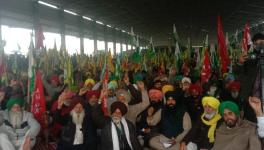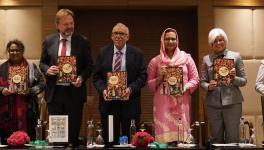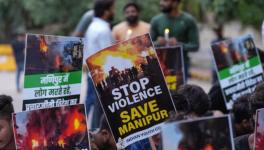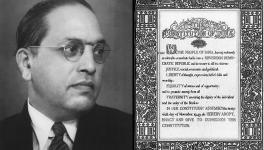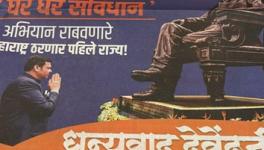Pro Tem Speaker: Established Parliamentary Practice Breached
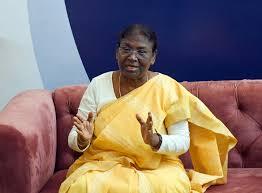
President Droupadi Murmu (File photo)
Possibly in the history of our parliamentary democracy there has been no instance of any tug of war between the Treasury and Opposition benches over the appointment of Lok Sabha MP as Pro Tem Speaker. With the appointment of six-time MP Bhartruhari Mahtab as Pro Tem Speaker on May 21, by President Droupadi Murmu, there have been sharp exchanges between Parliamentary Affairs Minister Kiren Rijiju and Congress leader Jairam Ramesh, indicating that relations between the Narendra Modi government and Opposition may not be smooth in the days to come.
Constitutional Provision Concerning Pro Tem Speaker
There is a well-established parliamentary practice followed by the President to appoint the senior-most Member of the newly constituted Lok Sabha to preside over the House as Pro Tem Speaker. It is a time- honoured tradition that has been followed since the commencement of the first Lok Sabha since 1952.
The President in exercise of the powers vested by Article 95(1) of the Constitution appoints a Member of Lok Sabha to function as Speaker when the post of Speaker and Deputy Speaker is vacant. That Member of Lok Sabha, so appointed by President, is called Pro Tem Speaker. Normally those two posts of presiding officers fall vacant when the new Lok Sabha is constituted after the results of general elections are announced.
Duties of Pro Tem Speaker
To administer the oath of office to the newly elected Members of the House and conduct election of the Speaker is the only function of the Pro Tem Speaker. Because of the responsibilities of the Pro Tem Speaker to carry out such routine functions, the appointment of any incumbent to that post is hardly contentious. But tragically, the earlier precedents of appointing the senior-most MP as Pro Tem Speaker was not followed by President Murmu when she, instead of appointing 8th term Lok Sabha MP K Suresh, appointed Mahtab, who has the record of serving as Lok Sabha MP for only six terms.
Rijiju’s Specious Justifications
Rijiju justified the latter’s appointment on the ground that he has an uninterrupted record of getting elected to the Lok Sabha consecutively for six terms and Suresh, who got elected to the House for eight times, has no such record of continuously winning in successive elections to represent people in the House. This is a rather specious ground advanced by him to justify the negation of a well-established practice followed since 1952 to appoint the senior-most Lok Sabha MP as Pro Tem Speaker.
Parliamentary Practice and Procedure Breached
The book, Practice and Procedure of Parliament, authored by M N Kaul and S L Shakdher, brought out by the Lok Sabha Secretariat, categorically states that the senior-most MP of Lok Sabha has always been appointed as Pro Tem Speaker by the President of India since 1952. While underlining the point that the senior-most member is chosen by the President to become Pro Tem Speaker, the book nowhere states that the senior-most status is determined by taking into account consecutive terms of the MP concerned. Therefore, Rijiju’s claim that K Suresh as an MP for eight terms has no record of getting elected to the House in successive elections, whereas Mahtab has an uninterrupted record of six terms, is contrary to the well-established parliamentary practice.
Past Pro Tem Speakers
All the Lok Sabha members appointed as Pro Tem Speakers right from the constitution of first Lok Sabha in 1952 to the 17th Lok Sabha in 2019 were senior- most Members of the House. So, the appointment of Mahtab as Pro Tem Speaker in spite of the fact that he is not the senior-most Member of 18th Lok Sabha, is contrary to the well-established practices followed earlier.
Stand Alone Example of Somnath Chatterjee
There was the example of Somnath Chatterjee who, in 2004, as the senior-most member of Lok Sabha, was appointed by the President Speaker Pro Tem. But when his name was considered for the post of Speaker, Lok Sabha, Balasaheb Vikhe Patil was appointed by the then President as Speaker Pro Tem. So, there is at least one example of a person who was appointed as Pro Tem Speaker but later relinquished that post on being selected to be a candidate for the post of Speaker to preside over the proceedings of the Lok Sabha. It is likely that Bhartruhari Mahatab might also get elevated to the post of Speaker.
Modi Government has Negated Convention
It is indeed quite extraordinary that the well-established parliamentary practice of appointing the Pro Tem Speaker has not been adhered to by the Modi government when it advised President Murmu, as mandated by Article 95(1), to Mahtab to that post even though he has completed six terms as MP of Lok Sabha, while in contrast K Suresh of Congress has served Lok Sabha for more number of years as MP.
President Murmu Violated Convention While Appointing Modi as PM
Droupadi Murmu, as Head of our Republic, is oath-bound to preserve, protect and defend the Constitution. The aforementioned well established parliamentary practice concerning the appointment of Pro Tem Speaker has the force of law behind it. Therefore, she should have adhered to that practice.
President Murmu’s decision to invite Modi to form the government and administer oath to him as Prime Minister without finding out if he was elected as leader of the BJP parliamentary party also raises many questions about her functioning as per the conventions followed by some of her distinguished predecessors, such as President R Venkatraman and K R Narayanan.
Venkataraman, while appointing V P Singh in 1989 as Prime Minister, ascertained that he was elected as leader of his legislature party/National Front alliance partners and asked him to prove his majority in the Lok Sabha within 30 days. Similarly, K R Narayanan assured himself before appointing Atal Bihari Vajpayee as Prime Minster in March 1998 that he was elected as leader of his legislature party, BJP, and had the support of his alliance partners belonging to National Democratic Alliance (NDA). He also asked Vajpayee to seek a vote of confidence within a stipulated time.
Tragically President Murmu has violated that convention and those of her precedents by not making sure for herself that Modi has been elected by his party’s parliamentary party and by not asking him to seek a vote of confidence.
Turn Searchlights Inward
Both in case of appointment of Modi as Prime Minister and Mahtab as Pro Tem Speaker, the conventions have been dispensed with by President Murmu. Such ominous developments may well cause harm to our parliamentary democracy and deal a severe blow to our credibility as the largest democracy in the world.
President Murmu must turn the searchlight inward and summon courage to uphold the Constitution and act as per constitutional morality at a time when India has been reduced to the unenviable position of an elected autocracy.
S N Sahu Served as Officer on Special Duty to President of India K R Narayanan. The views expressed are personal.
Get the latest reports & analysis with people's perspective on Protests, movements & deep analytical videos, discussions of the current affairs in your Telegram app. Subscribe to NewsClick's Telegram channel & get Real-Time updates on stories, as they get published on our website.









